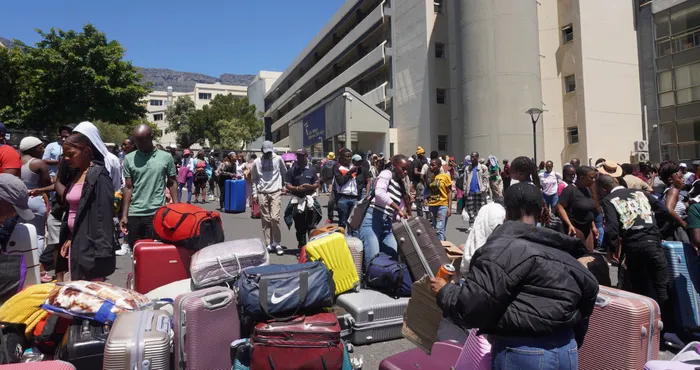Higher Education Committee raises concerns about NSFAS's mid-term accommodation cancellations

The Portfolio Committee on Higher Education has slammed mid-term NSFAS decisions, warning they disrupt students’ lives and academic progress, especially with the cancellation of unaccredited accommodation.
Image: Ian Landsberg / Independent Media
THE Portfolio Committee on Higher Education has expressed concerns about the impact of National Student Financial Aid Scheme (NSFAS) decisions on students, particularly the cancellation of student accommodation agreements with unaccredited providers during academic terms.
During a recent briefing from the newly appointed NSFAS board, the committee was updated on key matters, including student appeals, 2025 funding decisions, allowance disbursements, and accommodation challenges.
The committee expressed strong support for ensuring student housing is accredited, but criticised the timing of some NSFAS decisions.
“We fully support the cancellation of unaccredited accommodation, and as the committee, we concur on that point,” said Committee Chairperson Tebogo Letsie.
“However, when cancellations happen during the academic term or trimester, it creates serious challenges. Students are left stranded, unable to graduate, and burdened with debt for decisions they had no control over. We must urgently move toward ensuring that all accommodation is accredited.”
The committee further pointed to the 2024 financial year, when NSFAS defunded students mid-year, leaving institutions financially vulnerable and disrupting academic progress. These mid-term decisions, members noted, undermined institutional planning and triggered broader financial instability.
Committee members said NSFAS's operational shortcomings are compounding student debt and threatening academic outcomes. They also raised alarm over the agency’s poor timing, with key decisions often landing during critical academic periods.
The committee emphasised the urgent need to strengthen communication between NSFAS, universities, and students, noting that delays and miscommunication in funding decisions “continue to unfairly prejudice students.”
Related Topics: